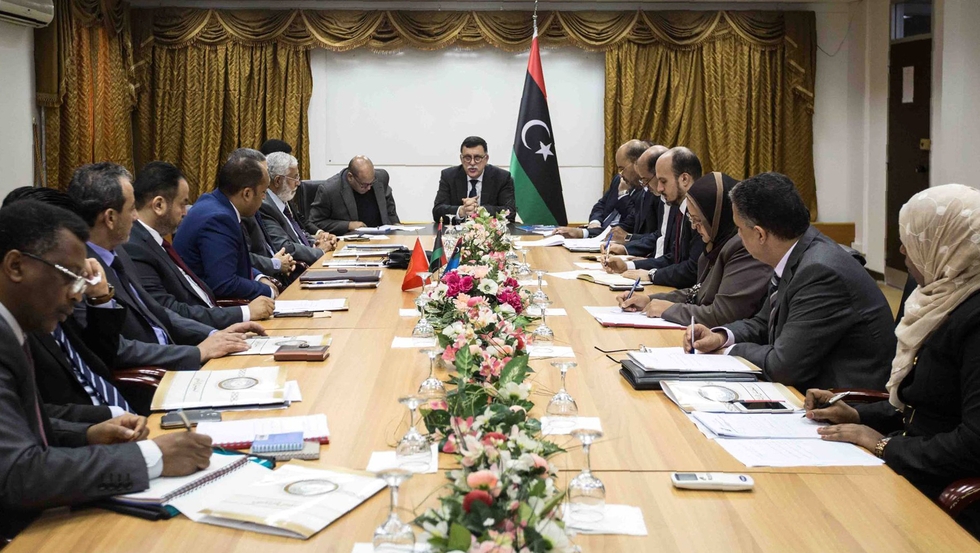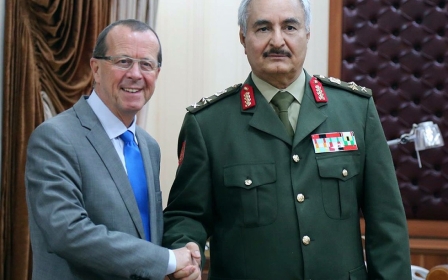Libya's unity government suffers blow as four ministers resign

Hopes for the success of Libya's unity government were dealt a blow on Thursday with the resignation of four cabinet ministers.
Finance Minister Fakhir Muftah Bouferna, Justice Minister Jumaa al-Dersi, National Reconciliation Minister Abdel Jawadd al-Abadi and Economy and Industry Minister Abdel Matloub Bouferwa all submitted their resignations to the Presidential Council late on Thursday.
The Presidential Council accepted the resignations at around 3am local time, but did not make public the reason for the withdrawals.
The UN-backed Government of National Accord (GNA) was installed in March with the aim of breaking months of political deadlock, which saw two rival governments – one based in the east of Libya and the other in the west – struggle for power.
The ministers who resigned on Thursday were all from the eastern bloc.
Since being flown into Libyan capital Tripoli under UN protection, the GNA has struggled to achieve unity, and neither of the two previous rival governments has put through a successful vote of confidence in it.
“The division between east and west has deepened since the Presidential Council [of the GNA] arrived in Tripoli,” independent Libya analyst Karim Munir told AFP on Thursday.
Despite ongoing political deadlock, the GNA has managed to secure some successes, achieving a rapprochement between rival central banks and national oil companies.
Military forces allied to the GNA have also managed to make headway against the Islamic State group, clearing the militants from a 280-kilometre stretch of coastline near the city of Sirte.
New MEE newsletter: Jerusalem Dispatch
Sign up to get the latest insights and analysis on Israel-Palestine, alongside Turkey Unpacked and other MEE newsletters
Middle East Eye delivers independent and unrivalled coverage and analysis of the Middle East, North Africa and beyond. To learn more about republishing this content and the associated fees, please fill out this form. More about MEE can be found here.




